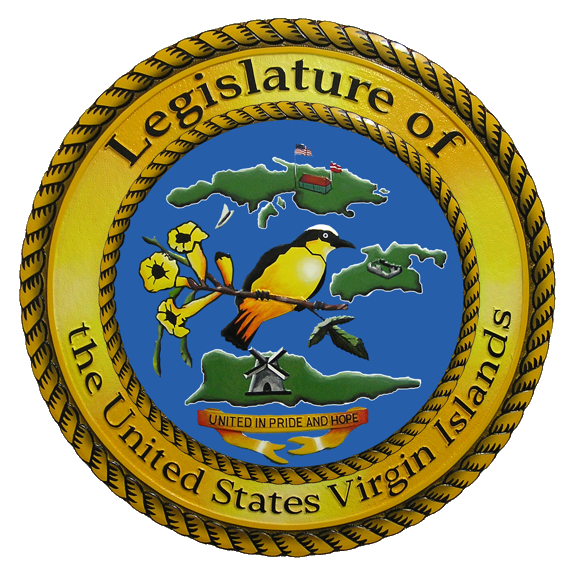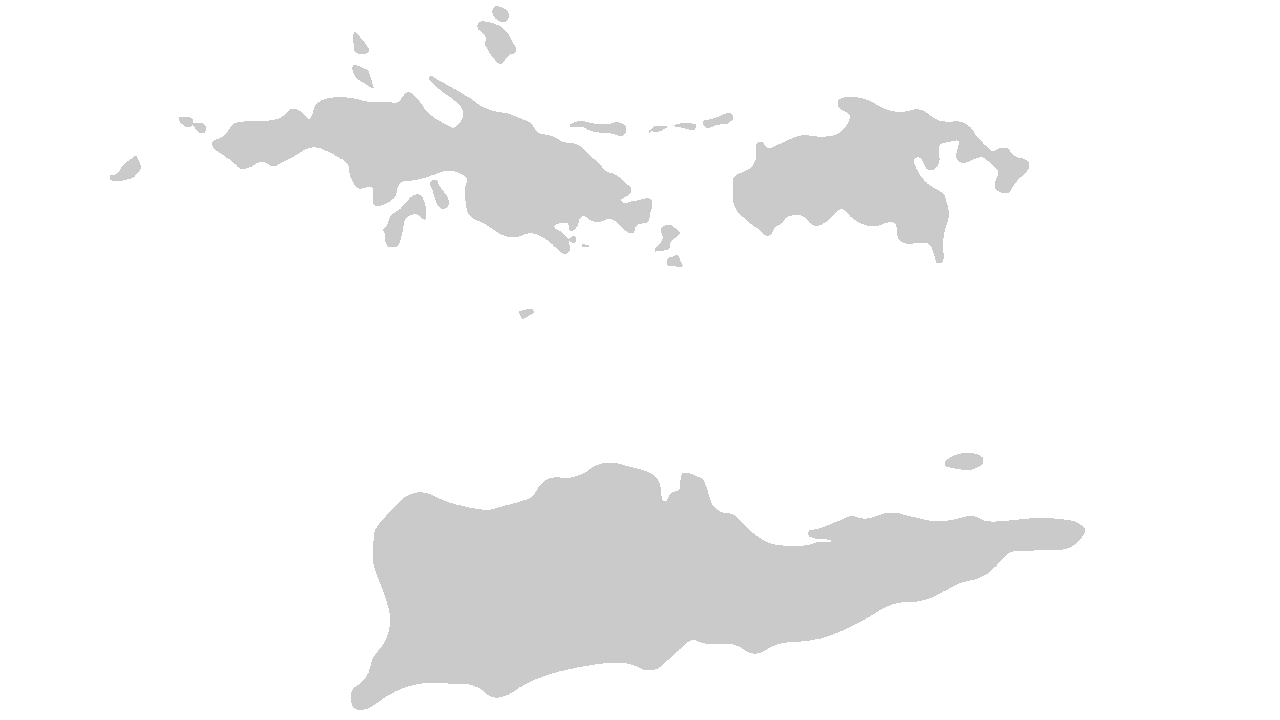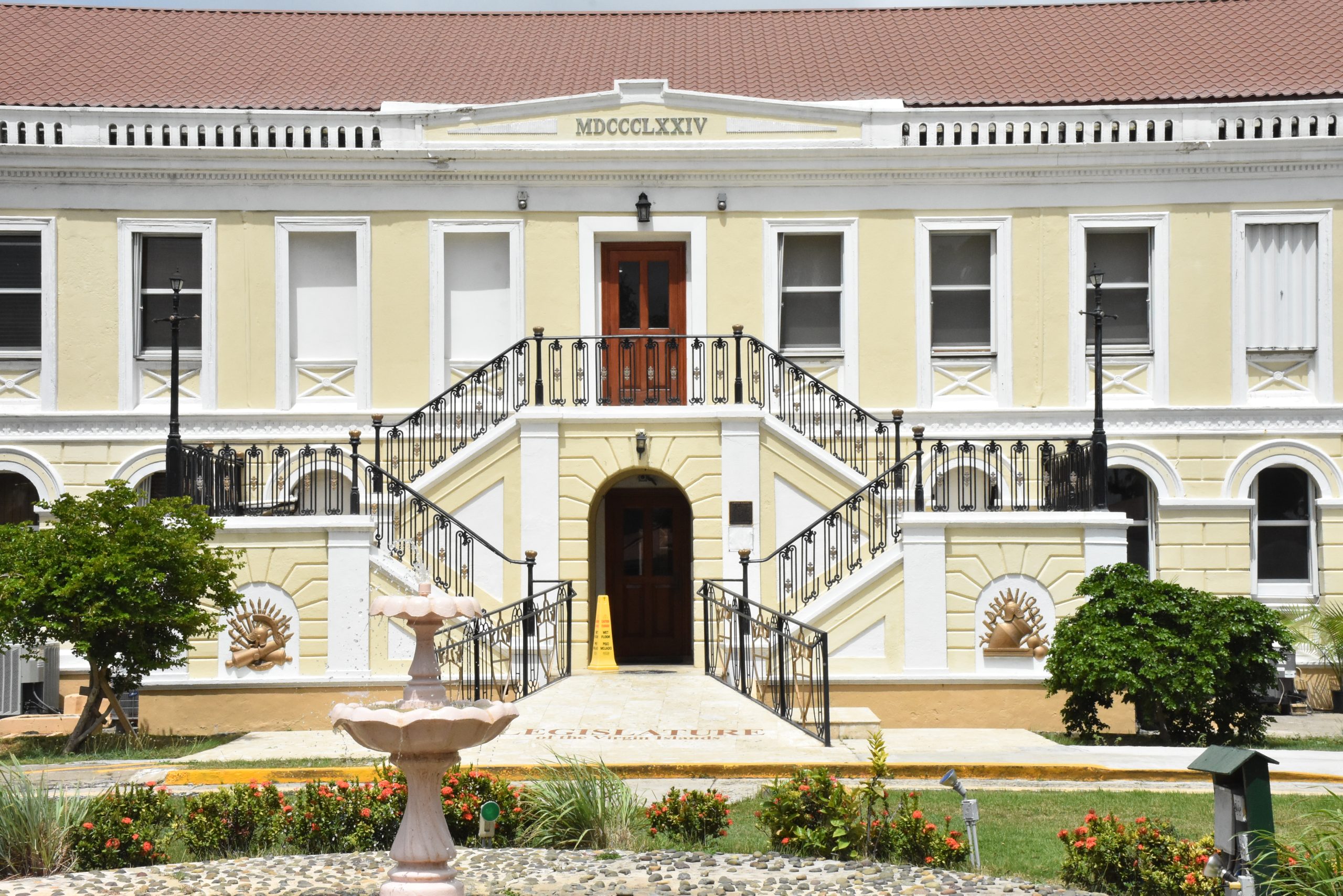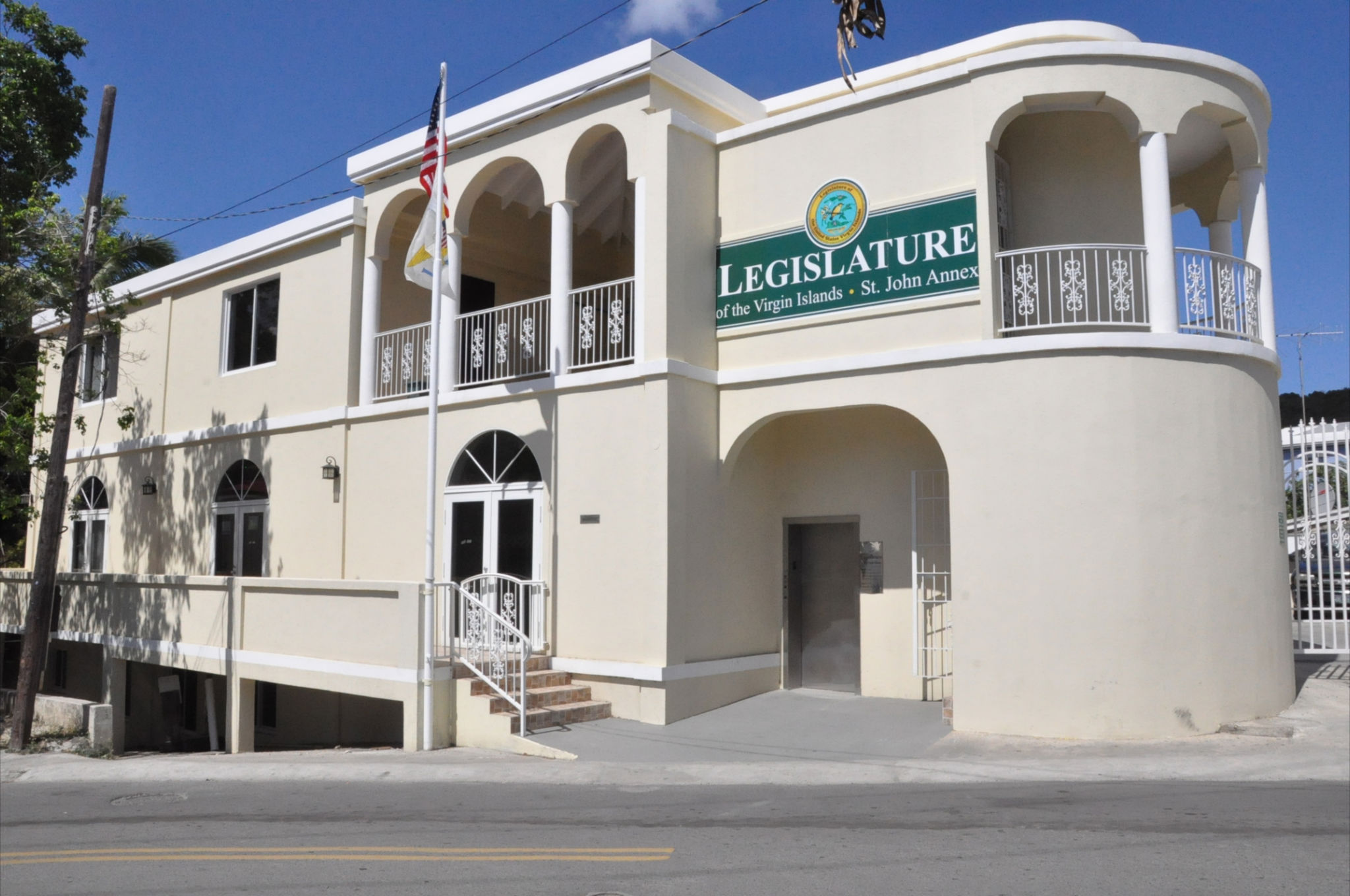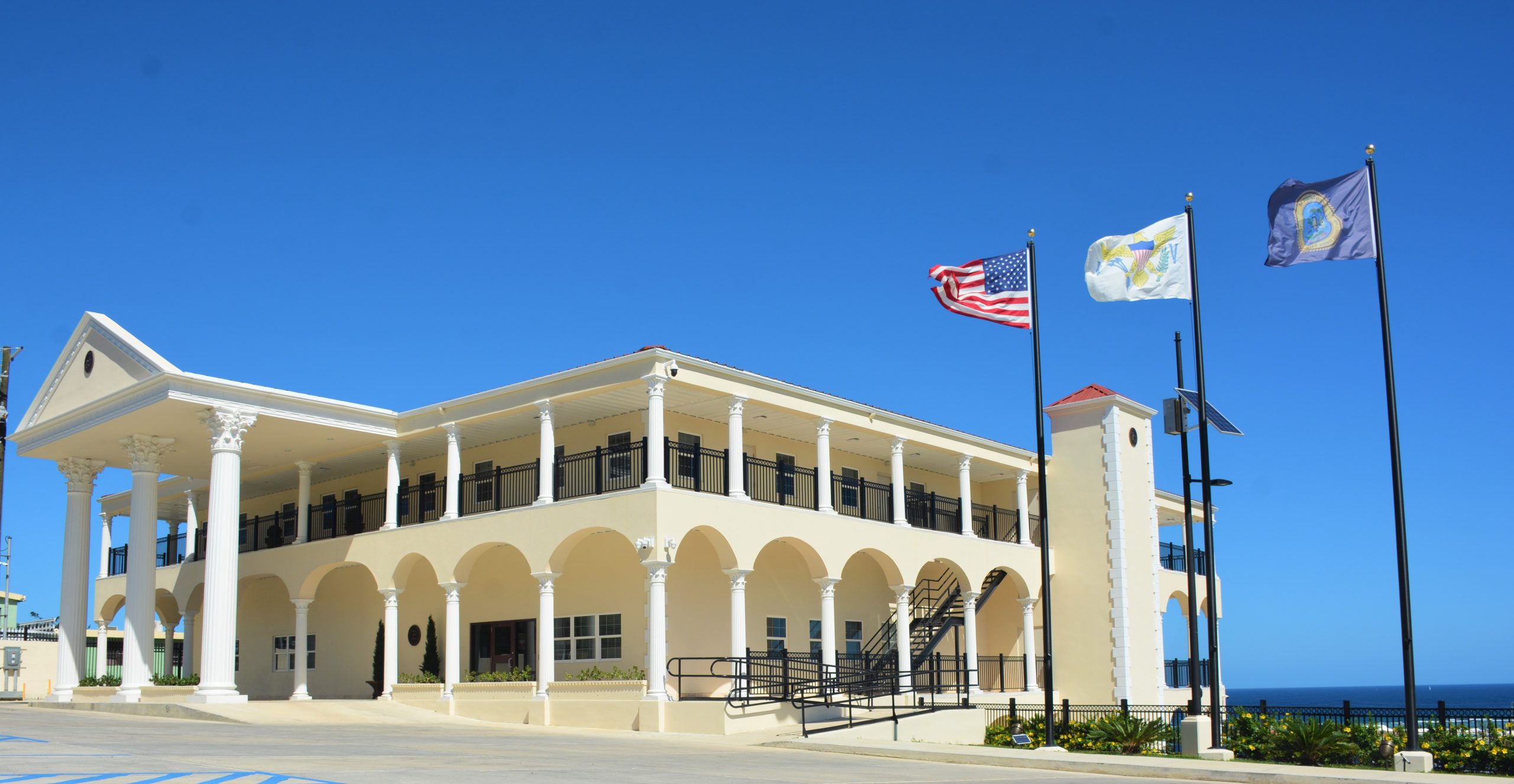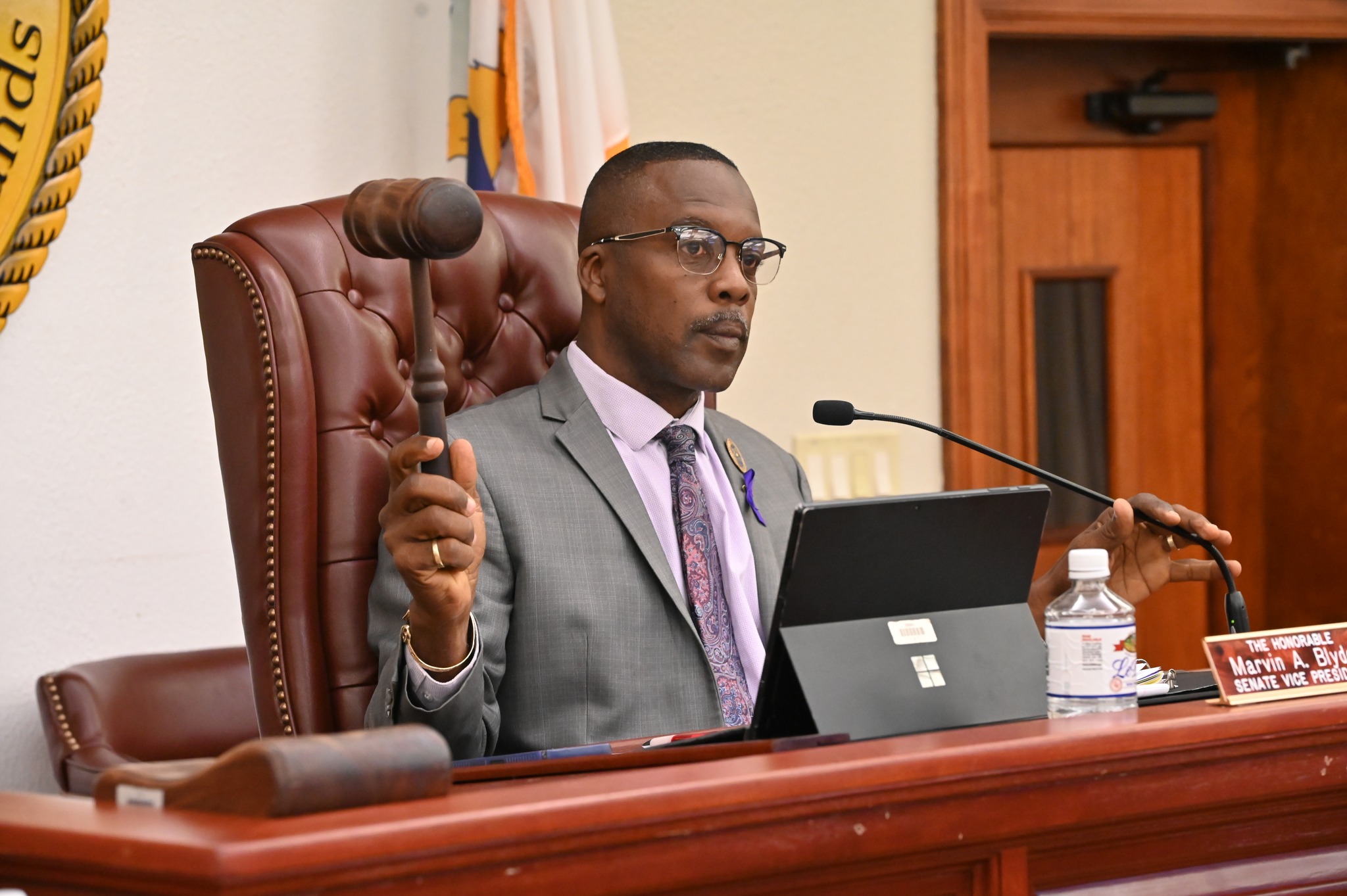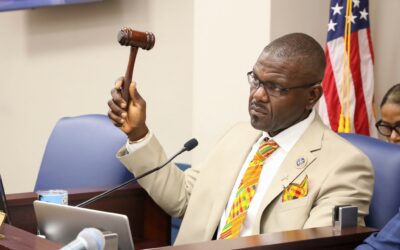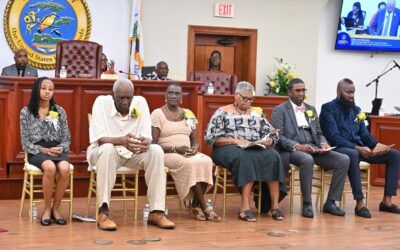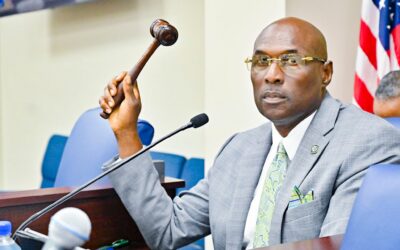ST. THOMAS – Convening at the Earle B. Ottley Legislative Hall, the 35th Legislature of the Virgin Islands’ Committee on Housing, Transportation, and Telecommunications, under the leadership of Senator Marvin A. Blyden, received an update on the VI Slice Program. Additionally, an update and discussion on the status of all affordable housing initiatives including implementation of the 2023-2023 Affordable housing plan, and the status of the First-Time Homebuyer Program & the EnVision Tomorrow Program.
Lawmakers first received an update regarding the VI Slice Program continuing the examination of affordable housing and homeownership issues considering recently announced eligibility requirements. Additionally, lending institutions provided an update, as well as their viewpoint on all issues related to rules, regulations and operations of the V.I. Slice program and homeownership financing. Mentioning the housing issues in the territory, Senator Marvin A. Blyden mentioned that it had been over 6 years since the passage of Hurricanes Irma and Maria. He mentioned that there were still residences in the territory that had tarps installed, calling it unacceptable. Senator Blyden also questioned the number of houses that were built since the passage of the 2017 hurricanes, citing increased federal funding.
In testimony read into the record from Ms. Kimme Bryce, Area Director at USDA Rural Development, it was mentioned that USDA through its 502 Direct Very Low/Low-Income program had only approved one loan, in conjunction with VI Slice. It is currently at the stage of loan closing. Per Bryce’s testimony, the VI Slice program was created for the moderate income and not USDA’s low-income program. The minimum income needed to participate in the VI Slice program leaves a small window of opportunity for low-income clients to participate. On St. Croix, the VI Slice minimum is $43,501 while the USDA Low Max is $54,300. USDA clients below $43,501 would not be able to participate. On St. Thomas, the Slice minimum is $45,298 and the USDA Low Max is $61,850. USDA clients below $45,298 would not be able to participate. On St. John, the VI Slice Minimum is $47,151 while the USDA Low Max is $83,900. USDA clients below $47,151 would not be able to participate. The intention with the VI Slice program was/is that the very low- and low-income clients would be referred to the VI Housing Finance Authority.
The area loan limits for the VIHFA Home program have program limits that are significantly below USDA. For example, On St. Croix the VIHFA Max is $261,000 while the USDA max is $377,000. There is extremely limited housing on St. Croix for $261,000 or below. On St. Thomas, the VIHFA Max is $333,000 while the USDA max is $465,500. On St. John, the VIHFA Max is $527,000 while the USDA max is $770,000. The VI Slice program has a $5,000 minimum downpayment requirement, which many of USDA very low-and low-income applications are unable to afford. USDA also has a no mortgage reserve requirement. Another major issue that remains is the lack of affordable housing in highly competitive environments, like the US Virgin Islands. USDA also cannot finance any properties with the intent to use that part for income production, like a duplex or house with an apartment, which is allowed by the VI Slice Program. The cost of home insurance is also a major concern.
In testimony read into the record from Mr. Valdamier Collens, President of Merchants Commercial Bank, Collens stated that since signing the MOA on March 2, 2023, the bank has not closed a residential mortgage transaction using the VI Slice program. However, Collens delivered data stating that a total of sixty-four households contacted Merchants Commercial Bank to inquire about the program. Of these households, forty-five of the households did not complete the Uniform Residential Loan Application or provide required supporting documentation to advance the underwriting process, such as filed tax returns or construction estimates. Seventeen of the households were declined due to insufficient income, not qualifying as a first-time homebuyer, or having an ownership interest in land, and two household advanced to underwriting and are being reviewed for adequacy for the VI Slice Program. Rising interest rates have also played a significant factor. This has risen by at least 5.25% since March 2022. The territory also has the lowest level of residential real estate inventory in the last 15 years, which is also adversely affecting demand for mortgages.
Dr. Stephanie Berry, Chief Operating Officer at the Virgin Islands Housing Finance Authority delivered testimony on behalf of Interim Executive Director Dayna Clendenin. Per Berry’s testimony, there are projects currently underway and, in the pipeline, to start within the next six months. The authority is looking at affordable homeownership opportunities that will provide direct and indirect assistance for those seeking homeownership alternatives. The current maximum loan limited established by HUD for the HOME program is 261,000 for St. Croix, $527,000 for St. John, and $333,00 for St. Thomas is less than the current cost to construct or purchase a home in the territory. The authority is reviewing how they can increase the loan limits for non-HOME funded transactions. Per Act 8465, the “Virgin Islands First Time Homebuyers Program Act” allowed the appropriation of $4 million from the Internal Revenue Matching Fund to the Homestead and Home Loan Fund to assist eligible homebuyers. Secondary financing up to $250,000 can be obtained through VIHFA for a single-family home once applications are qualified and referred through a local lender. The funds can also be used for down payment assistance. New constructions were mentioned throughout the territory such as Estate Bonne Esperance, Cotton Valley, Estate Jealously, Estate Mount Pleasant and Estate Solitude on St. Croix, Estate Fortuna, Estate Nazareth, Queen Louise Apartments, and Estate Donoe in St. Thomas, and Estate Bethany in St. John. Affordable rental housing, as well as emergency housing in St. Thomas and St. Croix has been slated for construction over the next two years.
Additionally, Wayne Biggs Jr., the Chief Executive Officer of the Virgin Islands Economic Development Authority delivered testimony. In Biggs’ testimony, eight VI Slice homeownership transactions have been approved totaling $614,757.95 in gap financing with overall bank financing of $2,196,641. Six of these have been approved for St. Croix totaling $397,433 and two for St. Thomas totaling $217,434.72. Six VI Slice transactions have closed and are fully disbursed totaling $425,096.89, one VI Slice transaction is closing this week in the amount of $118,821.22, and one in the amount of $70,839.84 will be closed by the end of the month. Capital Mortgage Services of Texas has originated six VI Slice transactions totaling $402,439.24, the United States Department of Agriculture/Rural Development has originated 143 one VI Slice transaction in the amount of $93,497.49, and First Bank Virgin Islands has originated one VI Slice transaction in the amount of $118,821.22. The authority is continuing to recruit additional lenders to participate in the program. VI Slice supports home purchasing with rehabilitation with a limit of up to $200,000, new construction with a limit of $200,000, and downpayment and closing costs assistance of a limit of $100,000. Eligible applications must meet established income requirements. Applicants must be a first-time home buyer and must be a resident of the territory of the last three years prior to the signing of a sales contract, except those who were prior residents of the territory for at least 10 years and have opted to return to the territory. Applicants must have a minimum credit score of 620 and must make a minimum earnest deposit of $5,000. Biggs stated that concerns did exist in the territory as they pertain to potential home ownership, such as the type of home that was being built, and the state of the local economy, as well as the proliferation of short-term rentals.
Additionally, lawmakers received an update and discussion on the status of all affordable housing initiatives, including implementation of the 2023-2024 Affordable Housing Plan; and the status of the First-Time Homebuyer Program & the EnVision Tomorrow program.
Dayna Clendinen, Interim Executive Director of the Virgin Islands Housing Finance Authority delivered testimony. EnVision was launched in 2019 as a response to the destruction caused by Hurricanes Irma and Maria. Envision, which consists of Homeowner and Rental Reconstruction and rehabilitation, a total of $160 million was initially allocated to both programs. $135 million was allocated to the Homeowner Program (HRRP) and $25 Million to the Rental Program (RRRP). The Homeowner Program initially provided a maximum grant of up to $250,000 to eligible homeowners for home repair or reconstruction. Applicants were vetted for the following eligibility: ownership, primary residency, occupancy at the time of the storm, citizenship, household income, and disaster damage. Once eligibility was met, VIFHA conducted an environmental Tier II review and completed an approved scope of work. Within three years, 675 damage assessments were conducted. 420 applicants completed their duplication of benefits review to move forward. In February 2022, there were twenty-seven projects in construction, mobilization, or pending mobilization with ten homes completed.
Meaghan Enright, Executive Director of Love City Strong delivered testimony. Per testimony delivered by Enright, the organization was founded as a volunteer effort of St. John residents in the aftermath of Hurricanes Irma and Maria. It is estimated that up to 74% of low- and middle-income residences were damaged in the 2017 Hurricanes. In the following years, the housing crisis has been worsened by the presence of recovery workers in the territory, with the increase of short-term rentals, which has led to a shortage in long term rentals, which has caused rental prices to rise. Love City Strong launched the Resilient Housing Initiative in Partnership with the St. John Community Foundation, All Hands and Hearts and three licensed St John based community companies in order to help address the unmet housing repair needs on the island of St. John. From September 2018 to present, the program rebuilt thirty-seven homes, with thirty-two being completed in 18 months.
Enrollment in the program was capped in September 2019 due to limited funding, and with the expectation that the federal EnVision Program would address the remaining unmet need. There are currently thirty-one clients in queue for that program, pending funding availability. Love City Strong also stepped in in early 2022 to manage the $7.8 million FEMA Hazard Mitigation Residential Wind Retrofit grant that was awarded to the St. John Community Foundation in August 2019. This funding will be used to replace the roof envelope, doors, windows, and or provide shutters for ninety-seven residences on St. John. Love City Strong took over management of the program in April 2022. At that time five homes were completed. Since then, sixteen homes were completed. Significant ceoncern was voiced as it comes to the status of deceased applicants to the EnVision program. Policies will be clarified as it pertains to the families of these applicants.
Senators present at today’s committee hearing included Marvin A. Blyden, Angel L. Bolques, Jr., Samuel Carriόn, Diane T. Capehart, Dwayne M. DeGraff, Novelle E. Francis, Jr., Alma Francis Heyliger, Donna A. Frett-Gregory, Ray Fonseca, Franklin D. Johnson, and Carla J. Joseph.
The Division of Public Affairs is committed to providing the community with accurate information on legislative proceedings and other events at the Legislature of the Virgin Islands.
####
